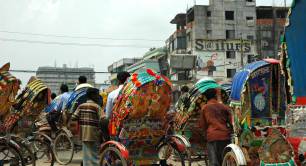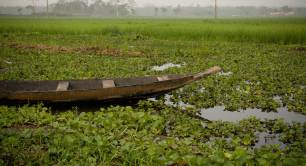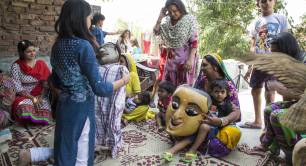Optimism abounds for social enterprise in Bangladesh
Pioneers Post reporter Ellie Ward travelled to Dhaka in Bangladesh earlier this year to attend the British Council Social Enterprise Policy Dialogue. Attendees and speakers were united in reacting positively to what they learned.
The British Council Policy Dialogue on Social Enterprise brought together major players from all corners of the globe to share knowledge, learning and potentially collaborate earlier this year.
Reaction was overwhelmingly positive. Matt Pusey, the deputy director of the British Council in Bangladesh noted: "There seems to be a real drive for change, especially with social enterprise, not least with corporates but also from the government as well. In other countries, too often I’ve heard the rhetoric but not the action to support that, but here in Bangladesh there seems to be a real thirst and drive towards actual change."
Bangladesh is already well known as a place where social business and social innovation have thrived, with probably the best known examples being the Grameen Bank and BRAC. At Grameen, founder Muhammad Yunus's microfinance loans made people think differently about a place that for many years was associated more for poverty than for entrepreneurship. Grameen proved that innovation existed that could help pull people out of poverty.
Starting out as an investment banker at Morgan Stanley in New York, Durreen Shahnaz spent some time working at Grameen before going on to found the Impact Investment Exchange (IIX) and Shujog, whose mission is to strengthen, deepen and expand the impact social enterprises deliver in poor and vulnerable communities.
She also found reasons for optimism about the sector in Bangladesh, particularly with the next generation. "The social enterprise landscape is becoming more democratised and the big reason for it is that young people are waking up to it. Also, they feel strongly about doing something with a social element to it." She also noted: "Government here is very keen to play the role of enabler to help this movement go faster."
With Bangladesh's economy growing by 6% per year and literacy levels improving, foundations are in place for the country to prosper. Despite this, 45 million people still live in poverty, so there is plenty of scope for social enterprise there to grow.



